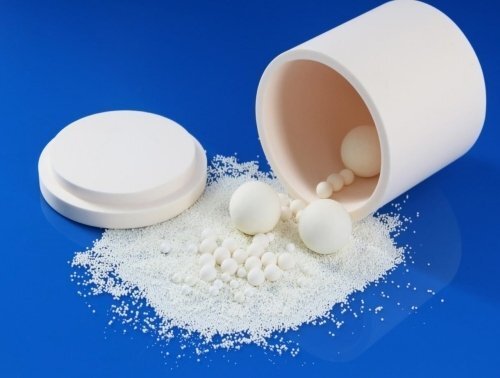Ball mills are used to grind botanical (or other) material to a desired particle size. The particles can then be used in later processing.
Industrial-grade efficiency and consistency are the key advantages of a bill mill or ball grinder. Even a novice end user can use a ball grinder to quickly output material at the chosen particle size.

Ceramic alumina grinding balls is characterized by high hardness, high density, low wear, good regularity and corrosion resistance. It is ideal and efficient grinding medium for grinding glaze, blank and various mineral powders.
The Advantages of Ceramic alumina grinding balls in Ball Mills:
1. Enhanced Grinding Efficiency
Ceramic alumina balls possess an innate ability to withstand extreme mechanical forces and maintain their structural integrity. This resilience translates to efficient grinding, as the balls effectively break down particles, ensuring thorough comminution and reducing processing times.
2. Reduced Contamination
In industries where purity is paramount, such as pharmaceuticals and advanced ceramics, ceramic alumina balls shine. Their chemical inertness minimizes the risk of cross-contamination, ensuring that your materials maintain their integrity throughout the milling process.
3. Extended Lifespan
Thanks to their remarkable wear resistance, ceramic alumina balls exhibit prolonged lifespan even under harsh milling conditions. This longevity translates to cost savings and reduced downtime for ball mill maintenance and replacements.
